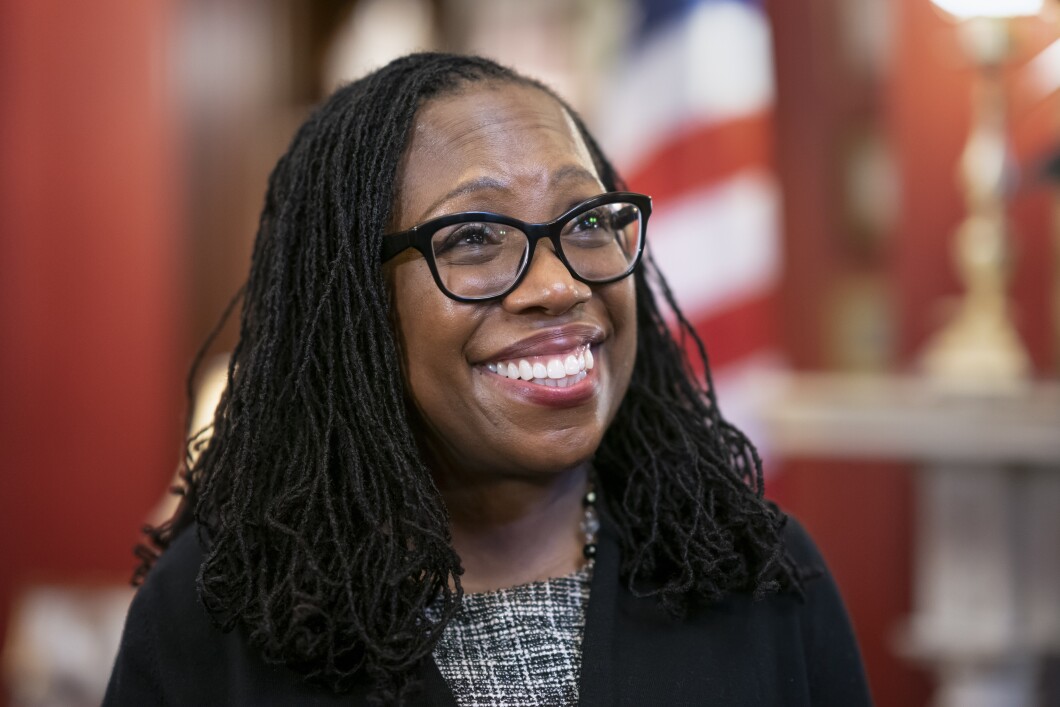
Supreme Court Justice Ketanji Brown Jackson issued a strong dissent Tuesday after the 6-3 Republican-appointed majority of justices declined to consider ineffective counsel claims from a man facing a nearly 160-year prison sentence for several armed robberies.
Jackson, whose arrival to the high court was championed by liberal advocates who praised her background as a former public defender, joined Justice Sonia Sotomayor in rebuking the majority’s decision not to take up the case of Quartavious Davis. The defendant in question asked the justices to consider his claim that he was denied effective counsel due to his lawyer’s alleged failure to enter plea negotiations with prosecutors.
“The instant case not only implicates a divergence of circuit opinions, but also is an ideal vehicle to evaluate the Eleventh Circuit’s bright-line rule that an adequate showing of prejudice requires an actual plea offer,” Jackson wrote in a three-page dissent joined by Sotomayor, raising concerns about a circuit split on the matter.
AI CHATBOTS AREN’T PROTECTED BY SECTION 230, GORSUCH SAYS

Davis was given a life sentence after a jury convicted him in connection to seven armed robberies that took place in 2010 in South Florida. During the two-month span that the robberies occurred, Davis turned 19 years old.
Co-defendants in the case negotiated plea deals that carry fewer than 40 years of imprisonment. Meanwhile, Davis was subjected to six mandatory consecutive terms of 25 years imprisonment and one mandatory consecutive term of five years for the 16 counts of which he was convicted.
Davis was initially given 161 years by a lower court, but it was later reduced to 159 years after an en banc panel on the U.S. Court of Appeals for the 11th Circuit found a sentencing enhancement error.
Jackson said that the “important legal question is isolated” in this case and would have been a vessel for the court to address the matter.
“The Eleventh Circuit gave short shrift to these alleged facts, and others, which suggest that Davis was harmed by his counsel’s failure to initiate plea negotiations because it applied a bright-line rule that prejudice cannot be shown in the absence of a plea offer,” Jackson wrote. “This petition presents the Court with a clear opportunity to resolve a Circuit split regarding whether having an actual plea offer is an indispensable prerequisite to making the necessary showing of prejudice.”
CLICK HERE TO READ MORE FROM THE WASHINGTON EXAMINER
Appointed to the high court last year by President Joe Biden, Jackson has made a name for herself on the high court as an “insistent” questioner and one who spoke more during her first week on the bench than at least two of her Republican-appointed predecessors — Justices Amy Coney Barrett and Neil Gorsuch.
Jackson, who is also the first black woman on the high court, is slated to speak at the Boston University School of Law’s convocation on May 21 and will soon release her first memoir since joining the bench, Lovely One.







